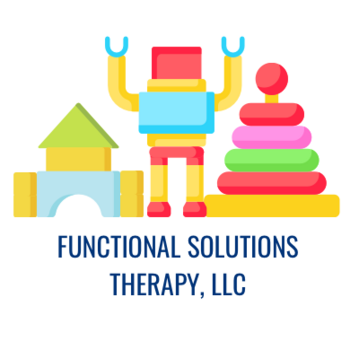Welcome to my site. I am a national board-certified occupational therapist (OTR) and I work with children from birth to age three. I help families support their children’s development and encourage each child’s independence. My goal is to share helpful resources and practical strategies for clients, therapists, caregivers, and families to make daily routines easier. I enjoy finding fun ways for children to feel proud of what they can do and to keep building new skills as they grow.
What is Occupational Therapy (OT)?
OT's are trained in an array of skills including motor skill development, sensory development, self regulation, neurological development, social emotional development, task analysis, and daily living skills such as feeding.
OT's range in education level with most OT's obtaining a Master's or Doctorate level of education for practice. OTA's are assistants who help deliver treatments based on plans developed by an overseeing OT.
Areas of participation that can be addressed by OT's:
ADL's: Basic activities of daily living (ADL’s) include bathing, dressing, grooming, toileting, feeding, and getting in/out of a bed or chair. Instrumental activities of daily living (IADL’s) include making phone calls, daily chores such as laundry, work tasks, or activities that other people can perform for you. These are also referred to as “Life Skills” so the term covers practically anything that you want or need to do in your day-to-day routine.
Ergonomics: We assess posture and work tasks to ensure successful performance and maintenance of conditions while working
Developmental Milestones: these include fine motor milestones, gross motor milestones, social-emotional skills, and visual motor skills. Fine motor skills include skills required for handwriting, using scissors, feeding utensils, and managing fasteners on clothing. We look at Gross motor skills such as the ability to maintain an appropriate posture for activities such as feeding or when needing to reach and retrieve clothing from a closet. Occupational Therapists view the body as a whole and the interconnections of all skills needed for participation. This also includes developmental play skills to help children build foundations for playing and working with others.
Emotional Regulation: Managing emotions to promote attention and manage behavioral reactions. This is strongly related to sensory conversations and current education in mental health. Side note therapists are required to take several hours of continuing education every year. Healthcare is constantly evolving so your therapist must be current on interventions that are supported by current research.
Attention and Executive Function: Executive Functions are skills that operate in the background of decision-making (time management, safety awareness, organization, impulse control, problem-solving, etc). Attention allows us to focus on what’s important and complete tasks. Different types of attention include divided attention (used during cooking, watching a child, or driving), selective attention, sustained attention, and alternating attention.
Physical Rehabilitation: This includes strength, coordination, and flexibility (Range of Motion/ROM). This area includes if adaptive equipment is required or if splints need to be made/ordered to help support body positioning for optimal participation in a daily task/activity.
Sensory and self regulation: OT's are trained in assessing and treating difficulty with self regulation when sensory concerns are present. Sensory treatment is more than just "toys" or types of clothing. An effective Sensory treatment plan involves assessing a individual's unique sensory needs and making manageable adjustments to support self regulation based on needs. Understanding sensory needs also requires an understanding of the nervous system and endocrine response when stressed.
Functional Mobility: considered a daily living skill, OT's also address how people get from one place to another as they go about their daily routine. OT's look at the whole picture and incorporate factors including psychosocial, environmental, functional strength and activity requirements.

Meghan Reyes
Occupational Therapist, OTR/L